In today’s fast-paced world, the demand for skilled educators in early childhood education is on the rise. Pursuing a master’s degree online offers a flexible and accessible way to deepen your knowledge and enhance your career. I’ve found that these programs not only provide essential theoretical insights but also practical skills that can be applied in real-world settings.
Online master’s programs cater to busy professionals, allowing you to balance work, family, and studies. With the right online program, you can gain expertise in child development, curriculum design, and effective teaching strategies—all from the comfort of your home. Join me as we explore the benefits and opportunities that come with earning an early childhood education master’s online.
Key Takeaways
- Flexibility & Accessibility: Online master’s programs in early childhood education offer the flexibility to balance work, family, and studies, ensuring you can learn at your own pace and convenience.
- Comprehensive Curriculum: The programs encompass core courses in child development, curriculum design, teaching strategies, and family engagement, alongside opportunities for specializations such as special education and leadership.
- Cost-Effective Education: Studying online often comes with lower tuition rates and additional savings on commuting and housing, making it an economically viable choice while still working.
- Accreditation Matters: Choosing a regionally accredited institution ensures high educational standards, enhancing employability and opening doors to advanced career opportunities post-graduation.
- Diverse Career Paths: Graduates can pursue various roles, including teaching, administrative positions, and leadership roles within early childhood programs, allowing for specialized focus in areas like special needs education or curriculum development.
Early Childhood Education Masters Online
 Early childhood education master’s programs online offer an opportunity to delve deeply into child development theories, educational frameworks, and pedagogical strategies. These programs typically require 30 to 42 credit hours for completion, allowing me to gain specialized knowledge in areas like early literacy, inclusive education, and family engagement.
Early childhood education master’s programs online offer an opportunity to delve deeply into child development theories, educational frameworks, and pedagogical strategies. These programs typically require 30 to 42 credit hours for completion, allowing me to gain specialized knowledge in areas like early literacy, inclusive education, and family engagement.
Curriculum design is a significant focus within these programs. I learn to create age-appropriate learning environments that support cognitive, emotional, and social development. Many institutions integrate practical experience through internships or fieldwork, providing a chance to apply learned concepts in real educational settings.
Flexible scheduling is another advantage of online formats. I can access lectures, assignments, and resources at my convenience without sacrificing my professional or personal responsibilities. Most programs offer asynchronous components, enabling me to engage with peers and faculty on my own timeline.
Accreditation is critical when selecting a program. Regionally accredited institutions ensure that the education I receive meets high standards. Graduating from an accredited program enhances my employability and may lead to advanced career opportunities, such as leadership roles or specialized positions in early childhood education.
Overall, pursuing an online master’s in early childhood education equips me not only with essential theoretical foundations but also with applicable skills that foster children’s development and learning.
Benefits of Pursuing an Online Degree

Pursuing an online master’s degree in early childhood education offers numerous advantages. These benefits make it an attractive option for those aiming to enhance their careers while managing other responsibilities.
Flexibility and Convenience
Flexibility stands out as a key benefit of online degree programs. Course schedules accommodate my busy lifestyle, allowing me to study at times that suit me best. I can balance work, family commitments, and education without compromising any area. Online platforms grant access to lectures, discussions, and resources 24/7, enabling me to learn at my own pace. Additionally, I can participate in group projects and communicate with peers and instructors through various digital tools. This level of convenience supports a personalized learning experience tailored to individual needs.
Cost-Effectiveness
Cost-effectiveness is another significant advantage of online programs. Online degrees often come with reduced tuition fees compared to traditional on-campus programs. I save money on commuting, housing, and other campus-related expenses. Many institutions provide financial aid options specifically for online students, making it easier to secure funding. Moreover, I can continue working while pursuing my degree, minimizing the financial strain that often accompanies higher education. This combination of savings and ongoing income enhances the overall value of obtaining an online master’s degree in early childhood education.
Curriculum Highlights
The curriculum in early childhood education master’s programs online covers essential concepts and skills for effective teaching. Students engage in core courses while having the option to specialize in specific areas of their interest.
Core Courses
Core courses lay the foundation for understanding child development, effective teaching methodologies, and educational psychology. Typical courses include:
- Child Development: Focuses on physical, social, emotional, and cognitive growth stages.
- Curriculum Design: Teaches how to create and implement age-appropriate curricula.
- Teaching Strategies: Covers various instructional approaches tailored for diverse learning needs.
- Assessment Methods: Explains techniques for evaluating child progress and educational outcomes.
- Family and Community Engagement: Discusses the importance of involving families and communities in children’s education.
Specializations and Electives
Students can choose specializations and electives tailored to their career goals. Options may include:
- Special Education: Prepares educators to work with children with diverse needs.
- Leadership and Administration: Focuses on developing skills for managing educational programs and teams.
- Curriculum and Instruction: Emphasizes innovative teaching practices and curriculum development.
- Technology in Education: Introduces digital tools and their applications in early childhood settings.
- Cultural Diversity: Explores the impact of culture on children’s learning and development.
By selecting from core courses, specializations, and electives, individuals can design an educational experience that aligns with their professional aspirations in early childhood education.
Admission Requirements
Admission requirements for online early childhood education master’s programs typically include several key criteria, ensuring candidates possess the necessary foundation for advanced study in this field.
Prerequisites
Most programs require a bachelor’s degree in education or a related field, with a minimum GPA of 2.5 or higher. Some institutions may accept degrees in other disciplines, provided the applicant has relevant coursework or experience in education. Additionally, many programs ask for official transcripts from previous institutions to verify academic history. Some schools also expect candidates to submit standardized test scores, such as the GRE, although this requirement varies by institution.
Application Process
The application process generally involves submitting several documents. Applicants typically complete an online application form, provide a statement of purpose outlining their educational goals and aspirations, and submit letters of recommendation from academic or professional contacts. Candidates often pay an application fee, which varies by institution. After submitting materials, applicants might participate in an interview or an assessment, depending on the program’s requirements. It’s crucial to check individual school websites for specific deadlines and detailed application instructions.
Career Opportunities After Graduation
Graduates of online early childhood education master’s programs find numerous career pathways available to them. The skills and knowledge gained during their studies open doors to various roles in education and administration within early childhood settings.
Teaching Roles
Graduates often pursue teaching roles in pre-schools, kindergartens, and early elementary grades. These positions involve developing and implementing engaging curricula based on child development principles. Teachers assess student progress, adapt lesson plans, and communicate with families to support learning. Specialized teaching roles may include positions for children with special needs or bilingual education, allowing graduates to leverage their training in targeted areas of expertise. With experience, teachers can advance to lead teacher positions or mentoring roles within educational institutions.
Administrative and Leadership Positions
Graduates can also explore administrative and leadership roles within early childhood programs. Director or administrator positions entail managing early education centers, overseeing staff, budgeting, and ensuring compliance with state regulations. Leadership roles may involve working as program coordinators or curriculum specialists, where graduates develop educational policies and implement quality improvement strategies. These positions often provide opportunities to influence educational practices and advocate for children’s needs within the broader community.
Pursuing an online master’s degree in early childhood education is a game-changer for those looking to advance their careers. The flexibility of online programs allows me to balance my professional and personal life while gaining valuable skills.
With a focus on child development and curriculum design, I can tailor my education to fit my career goals. The practical experiences integrated into these programs ensure I’m well-prepared for real-world challenges.
Choosing an accredited institution not only boosts my employability but also opens doors to various career opportunities. I’m excited to explore the possibilities that come with this advanced degree and make a meaningful impact in the lives of young learners.

